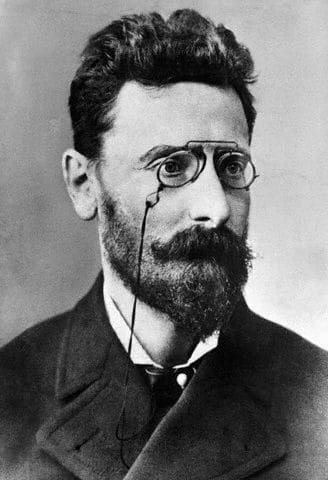
Joseph Pulitzer, public domain
József Pulitzer was born to a Jewish family in Hungary in 1847. When his father died, the family business went bankrupt. József tried to join various armies in Europe to support himself. He was rejected by Austria, France, and Britain. In Germany, he was recruited to fight for the Union in the U.S. Civil War.
Once the war was over, Joseph (his Americanized name) was again destitute. He was transient and worked odd jobs, eventually ending up in St. Louis. He failed at most physical labor because of his size and his temperament. None of his jobs lasted very long, but Joseph spent time between jobs in the library. He actually passed the bar but, again, was unsuccessful as a lawyer.
It was a swindle that put him on the journey to make a major contribution. After he and a dozen others were scammed by a fake job recruiter, Joseph wrote an article on the fraud that was published in a local paper. He was hired on as a journalist and began to realize his talent as a writer.
What followed was a career in journalism and politics where Joseph became more and more disillusioned with the corruption he saw. He decided to put aside his political career and focus more on opportunities for writing.
By the age of 30, Joseph had enough funds to buy a failing newspaper, the St. Louis Post-Dispatch. He transformed the paper into a populist-based source for investigative journalism. The paper became popular very quickly. However a series of political skirmishes made remaining in St. Louis undesirable, and he moved to New York City.
Joseph was able to buy the New York World newspaper and quickly turn it into the most-read paper in the country. His approach to journalism focused on appealing to the common person. As Pulitzer competed fiercely for readers, his popular form of journalism could be both sensationalist (“yellow journalism”) as well as focused on exposing corruption through investigative reporting. In many ways, Pulitzer shaped the world of modern mass media. In the remaining years of life, Joseph continued to be involved in politics and openly feuded with others in and out of journalism.
In 1892, Joseph offered $2 million to Columbia University to establish the first school of journalism. The gift was not accepted until after his death at the age of 64 in 1911. He also helped create a school of journalism at the University of Missouri. In 1917, Columbia initiated the Pulitzer Prizes in literature, poetry, history, music, and drama.
What would our society be like without a strong press? Think of the political scandals that have been brought to light by investigative journalism. While Joseph didn’t create the first newspapers in the country, he gave them an important voice for public accountability.
* * *
“Our republic and its press will rise or fall together.” – Joseph Pulitzer
This is part of our “Just Imagine” series of occasional posts, inviting you to join us in imagining positive possibilities for a citizen-centered democracy.



